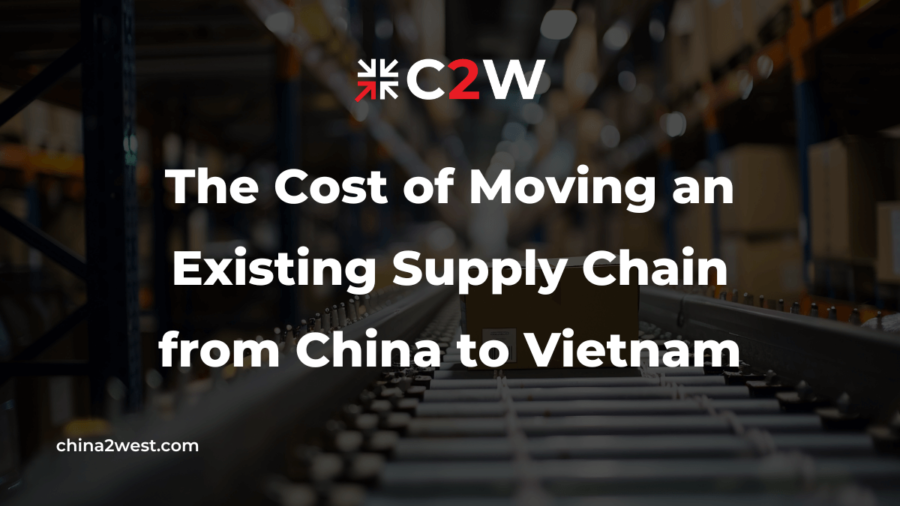In 2020, a whopping one-sixth of the world’s exports came from China alone. If your business sources its supply from China, you’re certainly not alone.
Still, you have to be strategic if you want to keep your business competitive in its local market. That means you need to take effective supply chain solutions seriously.
The good news is that this article is a great place to start. We’ve outlined seven key tips to help your supply chain management thrive. Keep reading to see how you can optimize your supply chain.
1. Do Your Research
When it comes to selecting a supplier or manufacturing partner, it’s essential to do your due diligence beforehand. This means taking the time to research different options.
Be sure to read reviews from previous clients to get a sense of the supplier’s reputation and track record. By doing so, you can avoid any potential problems or issues that may arise later on in the production process.
Checking the supplier’s certifications and licenses is also crucial. This ensures that they meet industry standards and are legally authorized to conduct business.
Asking for references can provide valuable insight into the supplier’s capabilities and reliability. Also, what kind of product expertise can they offer?
Taking these steps can help you make an informed decision about which supplier or manufacturing partner to choose. Remember that selecting the right supplier is not just about finding the lowest price. It’s also about finding a reliable and trustworthy partner that can meet your quality and production needs.
2. The Relationship With Your Supplier
Establishing a strong relationship with your supplier is critical to ensuring the success of your supply chain. When you have a good relationship with your supplier, you can trust that they will be committed to meeting your needs and delivering products of high quality.
Keep in touch with your supplier regularly. Further, be clear about your needs and expectations from the beginning of the relationship.
Clear communication can help prevent misunderstandings and ensure that everyone is on the same page. This means being transparent about production timelines, quality standards, and any other requirements that are important to you.
In addition, maintaining an open and respectful dialogue with your supplier can help build trust. This can lead to long-term partnerships that benefit both parties.
3. Prioritize Quality Control
Quality control is an essential aspect of any production process. It helps to ensure that products meet a consistent standard of quality.
Quality control measures throughout the production process can help catch any issues early on. This is most useful before they become larger problems that affect the final product.
This includes conducting regular inspections and audits. These are a great way to ensure that all aspects of the production process are meeting the necessary quality standards.
4. Have a Contingency Plan
Supply chains can be complex and involve many different parties and processes. As a result, unexpected disruptions can occur at any time.
These disruptions can include anything from natural disasters to political instability. It might even mean supply chain disruptions due to pandemics. They can significantly impact the production and delivery of products.
To mitigate the negative impact of these disruptions, have a contingency plan in place. A contingency plan outlines the steps that will be taken in the event of an unexpected disruption. It helps to minimize the impact on the supply chain.
This plan may include alternative suppliers or manufacturing options, for instance. It could also mean having backup storage facilities or alternative transportation routes.
5. Understand the Culture
Doing business in China requires an understanding of the country’s unique culture and business practices. It’s worth noting that the country’s industrial production has grown by almost 4% in this past year. With that in mind, business with China can be competitive, so take it seriously.
Be sure to familiarize yourself with local customs, business etiquette, and legal requirements. Doing so is the best way to ensure a successful business relationship.
Chinese culture places a strong emphasis on relationships. It’s common for business partners to develop a personal relationship before conducting business. This may involve socializing outside of work and exchanging small gifts as a sign of respect.
Chinese business practices may differ from those in Western countries. That’s why you need to learn the etiquette for conducting meetings, negotiations, and making decisions.
Finally, understand the legal requirements for doing business in China. This could include obtaining the necessary licenses and permits, protecting intellectual property rights, and complying with local labor laws.
6. Negotiate Fair Prices
When working with a supplier, make sure to negotiate fair prices for the products or services you require. However, it’s equally important not to sacrifice quality for lower costs.
It may be tempting to choose a supplier with the lowest prices. Still, this can lead to larger problems in the long run.
Poor-quality products can harm your reputation and lead to costly returns, replacements, or legal issues. Instead, consider the value of paying for quality.
A supplier that produces high-quality products may charge slightly more. This can be offset by the benefits of working with a reliable partner. A good supplier will work with you to find a price that meets your budget without compromising on quality.
7. Have a Clear Agreement
Having a clear and detailed agreement with your supplier is an essential aspect of maintaining a successful supply chain. This agreement should cover everything from pricing and delivery to quality control and dispute resolution.
A well-crafted agreement helps ensure that all parties involved understand and agree to the terms before production begins. This can minimize the risk of misunderstandings or disputes down the line.
Take the time to negotiate and finalize the terms of the agreement. This could involve details such as delivery dates, product specifications, and quality control measures. Ensure that all parties involved in the agreement understand the terms and are willing to abide by them.
Invest in Supply Chain Solutions
With a booming China manufacturing industry, there are a lot of reasons to source your supplies from there. It’s up to you to ensure you’re making the most of working with that industrious country. With the above supply chain solutions, you’re sure to stay competitive and successful throughout the future.
That’s where we can help. Take the time to learn more about how our supply chain management services could benefit your business now.




